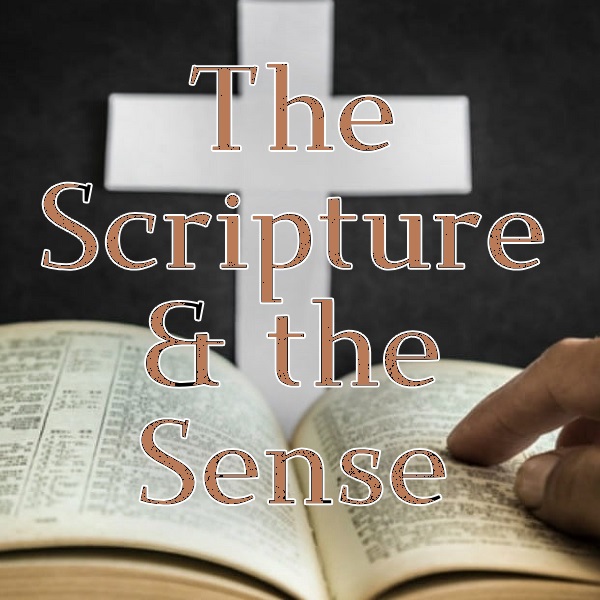This is Daniel Whyte III with The Scripture & The Sense Podcast #405, where I read the Word of God and give the sense of it based on an authoritative commentary source such as the Bible Knowledge Commentary. This podcast is based upon Nehemiah 8:8 where it says Ezra and the Levites “read in the book in the law of God distinctly, and gave the sense, and caused them to understand the reading.” The aim of this podcast is that through the simple reading of the Word of God and the giving of the sense of it, the church would be revived and the world would be awakened.
Today we are reading Amos 1:3.
3 Thus saith the Lord; For three transgressions of Damascus, and for four, I will not turn away the punishment thereof; because they have threshed Gilead with threshing instruments of iron:
________
That was Amos 1:3. Now here is the sense of it.
The Bible Knowledge Commentary reads:
The general declaration of irrevocable judgment occurs through the repeated phrase, For three sins or even for four, I will not turn back My wrath. The use of a number followed by the next higher number is frequent in the Old Testament. Usually the higher number is enumerated in detail, with special emphasis given the final item. Here Amos cited only the last of the crimes, the one which had finally gone beyond God’s patience. Meir Weiss argues that the phrase should be translated, “For three sins of … even for four,” as a poetic way of expressing the number seven, “a clearly typological number which symbolizes completeness”. If this is correct, it means irrevocable judgment was pronounced on each nation for its full and complete sin. In the case of the surrounding nations, only the final and culminating sin was named. But for Israel, the complete list of seven was given. Israel’s panic would likewise be sevenfold in the day God judged them.
The cause of judgment for each nation was its “sins,” its covenant violations. The word for “sin” means “rebellion” or “revolt,” and was used in secular treaties to describe a vassal’s disobedience of the terms of a covenant. The Old Testament prophets also used the noun peša‘ or the verb pāša‘ in denouncing Israel’s rebellion against God’s covenant with her.
Amos specifically viewed the sins of Judah and Israel as violations of the Mosaic Covenant. She had failed to observe the terms of God’s Law. But not only Israel had sinned against a covenant with God. The Gentile nations also were guilty of peša‘—rebellion against a divinely established and universally recognized agreement. Apparently Amos had in mind their rebellion against God’s universal covenant with humanity made at the time of Noah. In exchange for God’s suzerain promise never again to destroy the earth with a flood, the vassal peoples were to refrain from shedding blood because disregard for human life is an assault on God’s own image in man. Human life, rather than being destroyed or curtailed, was to multiply and increase on the earth. This mutual agreement, whereby God would preserve the earth and people would honor and extend human life, was called an “everlasting covenant”.
This is the covenant, Amos charged, that the Gentile nations had rebelled against. By their acts of barbarism (Amos 1:3), their wholesale deportations of slave populations (vv. 6, 9), their unnatural and stubborn hatreds (v. 11), their sickening atrocities (v. 13), and their desecrations of the dead (2:1), they had broken the covenant that forbade such inhuman acts. Because of these sins, the earth’s sovereign Lord declared, “I will not turn back My wrath.”
Similarly Isaiah (Isa. 24:4–6; 26:20–21) said that God would bring a “curse” of drought “to punish the people of the earth” because they had “broken the everlasting covenant” by shedding blood. As the New Testament confirms, though Gentiles may not have received the spoken or written Law, the requirements of human decency are nevertheless known to them, and their own accusing conscience tells them when they violate God’s standard (Rom. 2:14–15).
The culminating sin of Damascus, the capital of Aram, is that she threshed Gilead (also mentioned in Amos 1:13) of Transjordanian Israel with sledges having iron teeth. Threshing (cutting and separating the grain from the husks) was done on a threshing floor by pulling a heavy sledge over the grain. The sledge was a pair of roughly shaped boards, bent upward at the front, studded with iron prongs or knives. The reference here could be quite literal, describing a method of torturing prisoners; it is also a figure for harsh and thorough conquest (cf. Isa. 41:15; Micah 4:13; Hab. 3:12). Aram’s armies had raked across Gilead, slicing and crushing it as though it were grain on a threshing floor. This Israelite territory east of Jordan had suffered greatly during constant battles with the Arameans, particularly during the time of Hazael (841–801 b.c.) and his son and successor Ben-Hadad III (Amos 1:4; cf. 2 Kings 8:7–12; 10:32–33; 13:3–7; note the reference to “threshing” in 2 Kings 13:7).
____________
Thank you for listening to the Scripture & The Sense Podcast. Remember to read the Word of God each and every day and pray without ceasing to God for wisdom to understand it and apply it to your life. Most importantly, believe on the Lord Jesus Christ and thou shalt be saved. Please stay tuned for a complete presentation of the Gospel of the Lord Jesus Christ so that you can get your soul saved from Hell to that wonderful place called Heaven when you die. May God bless you and keep you is my prayer.
All Content & Images are provided by the acknowledged source



